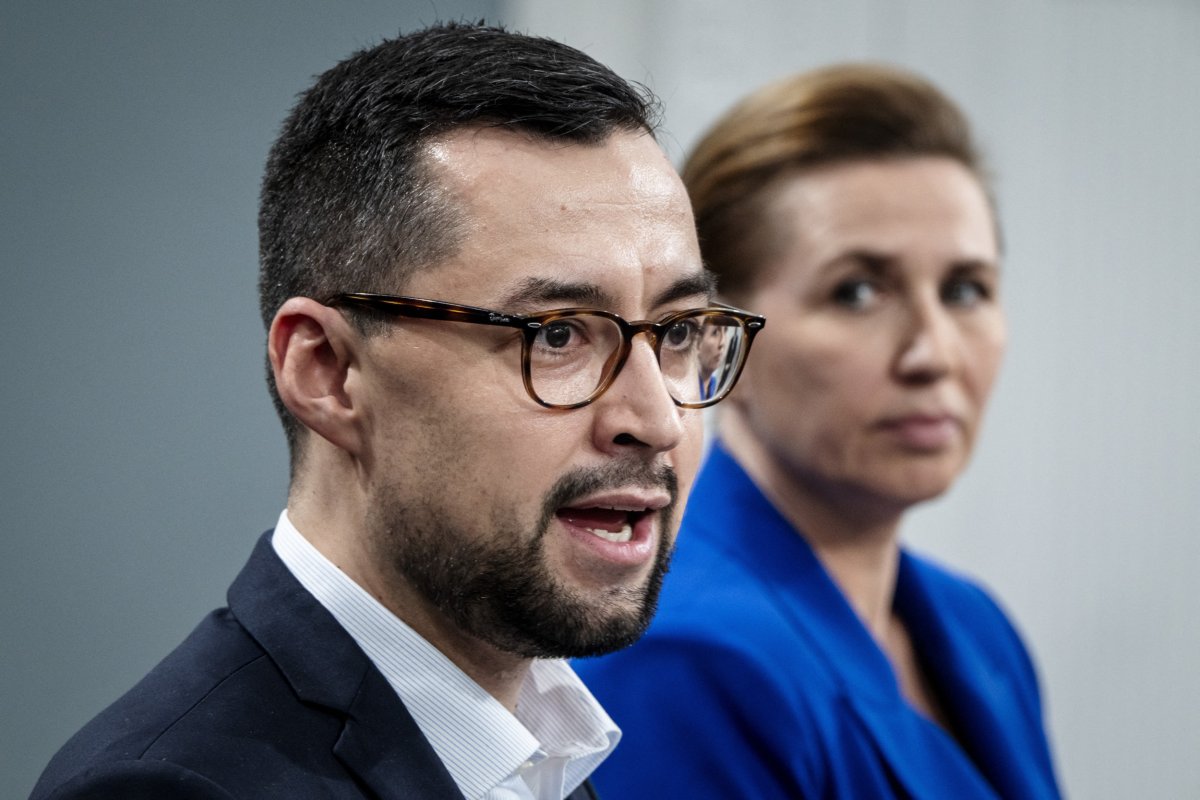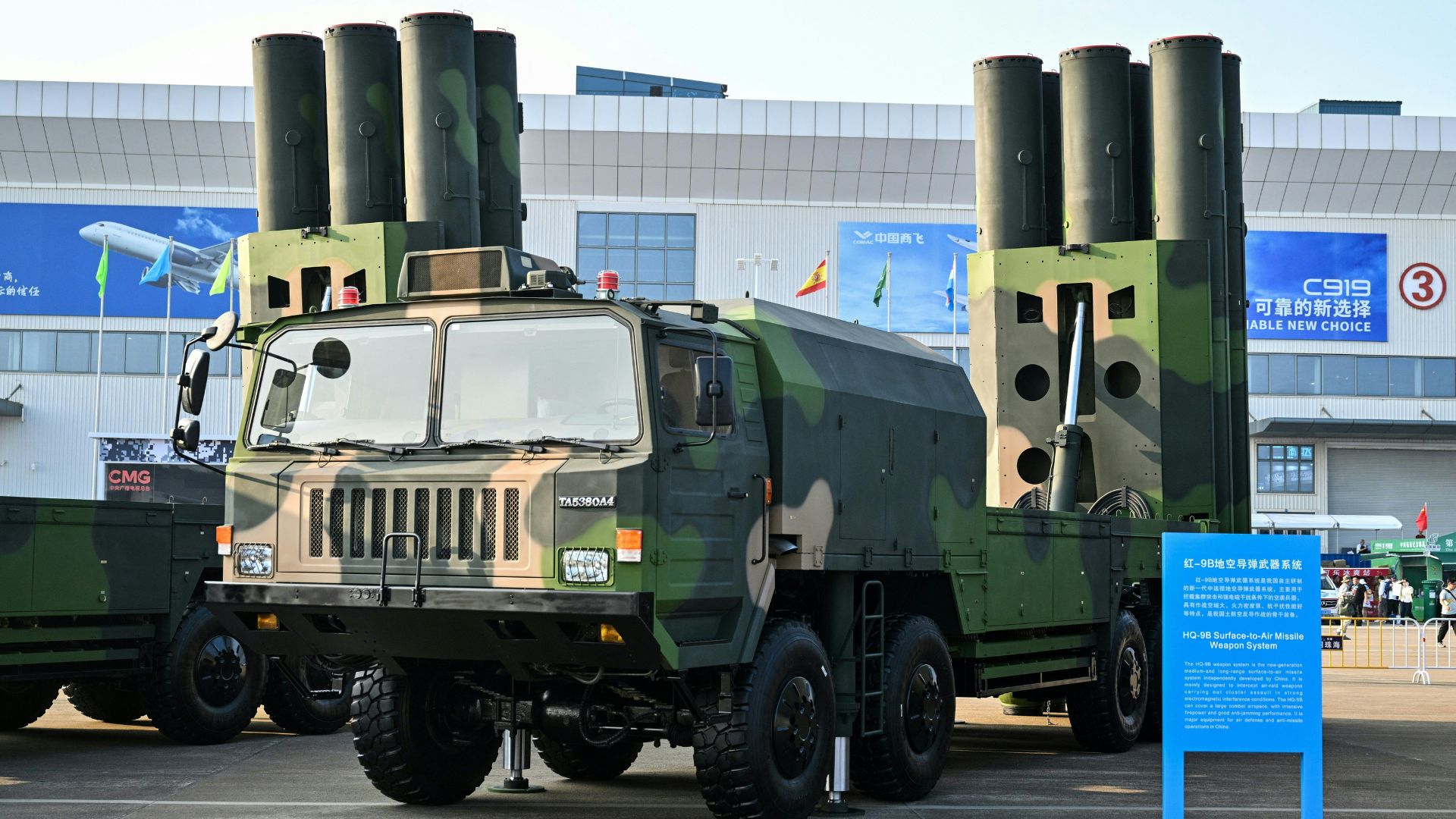The incoming American president Donald Trump made clear he has ambitions in the self-governing Danish territory of Greenland, a vast and sparsely populated Arctic island to the northeast of Canada replete with highly-prized mineral and energy resources.
Trump has proposed buying Greenland from Denmark, an idea rejected by the Danish government. More recently, he suggested that Greenland is of such strategic and national security importance to the U.S. he could not rule out military intervention.
There are wrinkles in Trump’s dream, chief among them many Greenlanders’ desire for independence and strong Danish opposition. But there is another complication: significant sympathy for China, America’s preeminent contemporary rival.
While many more Greenlanders want closer ties with Washington than Beijing, a large number still view China positively. A large majority want an independent policy on China and not to follow Washington’s lead.
Newsweek emailed the Trump team’s press office for comment.
Greenlanders have been polled twice on foreign policy issues, both times by Ilisimatusarfik, the University of Greenland, first in 2021 and again in 2024.
Photo Illustration by Newsweek/Getty Images
Positive attitudes to China dropped in that time, but remain a sizable chunk. When asked in the second survey if Greenland should follow America’s policy on China, the response was emphatic—79.5 percent said no.
And though 57.6 percent of respondents thought China’s growing international influence was negative in 2024, 42.4 percent said it is positive, a large minority, albeit down by nearly 10 percentage points from 2021.
By contrast, a Gallup poll of Americans in 2023 found that just 15 percent view China favorably, a record low.
With Trump set to reenter the White House when he is inaugurated on Monday, Jan. 20, Newsweek asked experts on Greenland and Arctic security for their views on the China-Trump dynamic. Here’s what they said.
Klaus Dodds: China Seen as Future Investor in Greenland
The Greenlandic Prime Minister is clear that his vision of a future independent Greenland is not one conditioned by President Trump’s grand strategic designs.
China is an important economic partner for Greenland, and the trade in fish exports alone in 2022 was worth over $350 million. China will be widely perceived as a future investor in both mining and the development of tourism, including hotels.
And given China’s position on territorial entities such as Tibet and Taiwan, there is a widely held view that China is unlikely to interfere with Denmark and its relationship with the Danish realm.
If anything, Donald Trump’s remarks about Greenland (and the Panama Canal) have put the people of Taiwan at greater risk from Chinese invasion and recovery.
In the end, an independent Greenland will be widely regarded as a security worry for the United States. And one that demands urgent attention given growing Chinese and Russian collaboration with one another in the Arctic region.
Klaus Dodds is professor of geopolitics and executive dean for the School of Life Sciences and Environment at Royal Holloway, London. He researches geopolitics and security, ice studies, and the international governance of the Antarctic and the Arctic.

EMIL STACH/Ritzau Scanpix/AFP via Getty Images
Mark Nuttall: China Cooperation Is Part of Greenland’s Broader Ambitions
China is an important market for Greenland’s seafood exports, particularly shrimp and halibut, which are critical for Greenland’s economy.
Greenlandic politicians and business leaders have been encouraging greater economic connections, and are engaged in discussions about what Chinese companies interested in mining ventures can offer, as well as investment in the development of infrastructure, technology, and scientific cooperation. Greenland also sees great potential in encouraging more Chinese tourists to visit the country.
Co-operation with China, though, must be seen in the context of Greenland’s broader ambitions, which are concerned with strengthening trade relations and economic partnerships not just with China but with many other countries.
This is a priority, because it provides economic opportunities that allow Greenland to diversify its trade relations, expand its participation in the global economy, and move away from dependence on markets in Denmark and the European Union.
Mark Nuttall is professor and Henry Marshall Tory Chair of Anthropology in the Department of Anthropology at the University of Alberta. He is a social anthropologist and has conducted research in Greenland. He is also adjunct professor at the Ilisimatusarfik/University of Greenland and the Greenland Climate Research Centre.
Whitney Lackenbauer: Optimism Is Waning But Push for Chinese Trade and Investment Continues
While China’s soft power influence in Denmark has been collapsing in recent years (a trend that is directly reflected in Copenhagen’s hard line on Chinese infrastructure investment in Greenland), Greenlandic political priorities tend to place local economic considerations over geopolitics.
Nonetheless, a recent public opinion poll by Nasiffik at Ilisimatusarfik (the University of Greenland) found that, while domestic issues tend to trump foreign policy concerns, 55.4 percent of Greenlanders would prefer less cooperation with China (while 59 percent would prefer more cooperation with the US).
Although much of Greenland’s earlier optimism surrounding potential Chinese investment has waned, the government continues to push for trade and engagement that will translate foreign interest in Greenland into sustainable economic development.
The United States sees the People’s Republic of China as a “pacing challenge” globally and a competitor in the Arctic that is seeking to extend its economic, scientific, and military reach and influence, control key infrastructure and resources, and remake the international rules-based order.
Given Greenland’s importance to the defense of North America, any Chinese footprint there is perceived as a risk if not a threat.
Whitney Lackenbauer is professor at Trent University in Canada. He is one of Canada’s leading experts on Arctic security, history, and contemporary policy, and is a fellow with the Arctic Institute of North America.

MADS CLAUS RASMUSSEN/Ritzau Scanpix/AFP via Getty Images
Rob Huebert: Lack of Data on Greenland’s China Views
There have been some recent polls that suggest that Greenlanders have a mixed feeling.
In 2021, 52.8 percent find China’s growing international role positive, compared to 47.2 percent who find it negative. It is hard to know if this feeling has continued given the lack of polling and the very small population of the island.
Part of the reality of the island is its remoteness. How much do the Greenlanders actually think about China remains an important issue, so any opinion among the population may not be that “strong” one way or the other.
They are more focused on issues related to Denmark, Europe and the United States.
Thus any effort of comparing the Greenlanders view of China with Americans view is problematic. There simply is not much to evaluate it on.
Rob Huebert is an associate professor in the Department of Political Science and Interim Director of the Centre for Military, Security and Strategic Studies at the University of Calgary. His areas of research are Arctic sovereignty and security, maritime security, and strategic studies.

